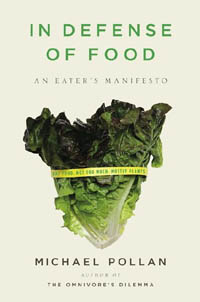“The dinner we have eaten tonight, was part of the sun but a few months ago.” – Weston Price
 |
When geneticists mapped out the human genome, they found a complex world of proteins that will take decades, possibly centuries, to fully decipher. Medical applications, such as gene therapy, cloning, and medications must go through years of rigorous testing before being tried on humans, and even then, some of these must be recalled for dangerous side effects. The long chain of events from our DNA to our physical and mental expressions is far too complex for anything else.
Nutritionists work the opposite way. They isolate nutrients out of foods that we know are healthy, and then tell us to get more of that nutrient in our diets. When they say “oatbran” or “calcium,” food manufacturers up that nutrient paste it on their refined cereals, oils, pastas, and other manufactured food stuffs. Then we consumers eat more of that isolated nutrient. Because it’s food, the same rigorous testing does not apply. We consume these nutrients in food, what’s wrong with consuming them isolated from it?
We are in the midsts of a great dietary experiment, because we don’t really know what eating specific nutrients isolated out of their contexts will do to our bodies, but we recognize the effects of this strategy overall. Our obesity rates are soaring, as are diabetes rates and heart disease.
The reasons why this strategy isn’t working are myriad and complex beyond our full appreciation. Counfounders, variables in our whole foods, are not appropriately accounted for in our nutritionist methodologies. Just as chaos theory prevents us from predicting the weather, it prevents us from predicting the effects of dramatically changing our diets. For instance, failing to take into account the ways foods work together:
We eat foods in combinations and in orders that effect how they’re metabolized. The carbohydrates in a bagel will be absorbed more slowly if the bagel is spread with peanut butter; the fiber, fat, and protein in the peanut butter cushion the insulin response, thereby blunting the impact of the carbohydrates. Drink coffee with your steak, and your body won’t be able to fully absorb the iron in the meat. The olive oil with which I eat tomatoes makes the lycopene they contain more available to my body. … We have barely begun to understand the relationships among foods in a cuisine (66, 67).
These complementary and deleterious effects of different food combinations are called Food Synergy. Our diets are more than the sum of their nutrient parts. This is the thesis of Michael Pollan’s well-written and increasingly influential “Eater’s Manifesto.”
As a child, I would often find dead bugs in the white flour in our pantry. My mother, a nurse, explained the bugs had died, “because there are no nutrients in white flour.” Pollan asks, “Is a steak from a feedlot steer that consumed a diet of corn, various industrial waste products, antibiotics, and hormones still a ‘whole food’ (143)?”
Modern agriculture first robs the soil of its nutrients, then we rob the food produced of its nutrients to preserve it. The result is that we now have to eat three apples to get the same amount of iron in a 1940s apple (118). This decline in nutrients is great for food manufacturers, as it forces us to eat more of their product to maintain our health, but has created a culture of over-consumption.
Abnormality is defined as the absence of normality. Diabetes has become a cultural norm, as has tooth decay and heart disease, but in the context of our species, they are not the norm. They are the result of an influx of simple carbohydrates. Combining pure glucose with fructose to produce sucrose was like turning cocoa leaves into cocaine (105), our bodies are overwhelmed by it.
Michale Pollan’s strategy for escaping this downward spiral is simple, “Eat food. Not too much. Mostly plants.” Pollan’s book is a quick read and a simple message, but one that belongs on everyone’s bookshelf.
The article that preceded this excellent book, Unhappy Meals, is available online, which hits many of the point in Pollan’s book about how we adopted the nutritionist approach to food and what foods we should eat for maintaining health.
Pollan’s Rules for Eating are posted at NPR.
He has also given a TED talk.
Michael Pollan also gave a talk at Google:
Comments
6 responses to “Michael Pollan In Defense of Food”